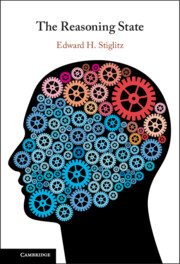7 - Diagnosing the Administrative State
Published online by Cambridge University Press: 16 June 2022
Summary
This chapter is diagnostic in nature and marks a turn toward a normative assessment. It argues that we continue to experience high levels of distrust in government for three reasons. First, it observes that, however dark our current circumstances, the counterfactual in which the legislature is more active in lawmaking is darker still. Second, it points out that the scope of government activity has changed markedly over the last century, with the government edging into policy areas that may be comparatively difficult to build trust in. Third, and most relevant to the book’s thesis, the present state deviates from the theory in a variety of ways. For instance, administrative agencies increasingly favor thinly proceduralized actions, often at the expense of transparency, deliberation and public reasoning. Likewise, an ideology of presidential control over the administrative state threatens the space necessary for the reasoning state to thrive. Privatization of public roles, similarly, jeopardizes the place of the reasoning state.
- Type
- Chapter
- Information
- The Reasoning State , pp. 243 - 269Publisher: Cambridge University PressPrint publication year: 2022

